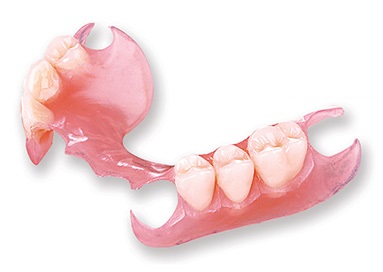What if I am allergic to my partial denture? My gums get sore, and my tongue burns every time I wear it. At the end of the day, I can feel tiny bumps on my gums. The irritation goes away if I stay home for a few days and don’t need to wear the partial denture. Can I exchange it for something else, or will I need to pay for a new partial? My dentist mentioned a bridge, but that seems extreme. I would rather research another type of partial. Thanks. Juliette from Wilmington, DE
Juliette – Dentists can design partial plates from several materials. While a fixed bridge can work, it may not be practical for every patient. A dentist who listens carefully will suggest other solutions when cost or allergy is a concern.
Why Might I Feel Burning or Irritation from My Partial Denture?
Burning in the lips or tongue can be a sign of a contact allergy. This happens when your body reacts to one of the materials used in your denture.
What Should I Do If I Think I’m Allergic to My Partial?
If you notice irritation, leave the partial out until you know which material is causing the problem. A mouth rinse may provide temporary relief, but it will not address the underlying issue.
How Can I Determine Which Material Is Safe for Me?
Your dentist can work with an allergist for testing. These tests identify which materials your body tolerates and which cause reactions. Once you know the results, your dentist can make a new partial with a non-irritating material.
Which Dental Materials Are Most Likely to Cause Allergies?
Dentures and partials can be made from several materials:
- Acrylic – common and inexpensive, but more likely to cause reactions.
- Valplast – a flexible nylon-based resin, rarely linked to allergies.
- Metals – nickel and some other alloys may trigger allergies in sensitive patients.
Will My Insurance Cover Allergy Testing?
In many cases, medical insurance covers allergy testing. This can make it easier to find a safe and affordable long-term solution.
Plano, Texas, female dentist Dr. Miranda Lacy sponsors this post.
